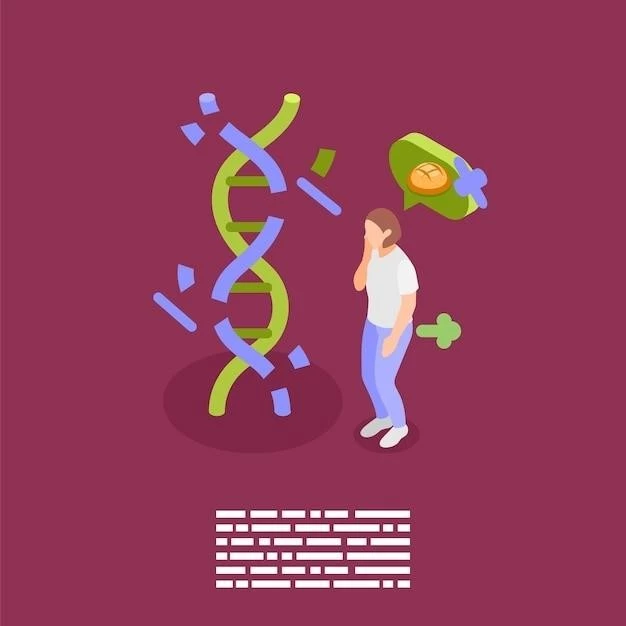Common symptoms of Chromosome 9 Trisomy may include developmental delays, intellectual disabilities, facial abnormalities, and growth delays.
Recognizing the Common Symptoms
Recognizing the common symptoms of Chromosome 9 Trisomy is crucial for early intervention. Look out for signs such as developmental delays, intellectual disabilities, facial abnormalities, and growth delays. If you notice any of these symptoms in yourself or a loved one, seek medical advice promptly. Early diagnosis and intervention can support better outcomes and quality of life.
Chromosome 9 Trisomy is typically caused by the presence of an extra copy of chromosome 9 in the cells. Understanding these genetic mechanisms is essential for managing the condition effectively.
Understanding the Genetic Mechanisms
It’s important to understand that in Chromosome 9 Trisomy, an individual has an extra chromosome 9. This may result from errors during cell division, often occurring randomly. Genetic counseling can provide more insights into the specific genetic mechanisms involved in this condition and help families understand the implications for their loved ones. Stay informed and consult genetic experts for personalized guidance.
Accurate diagnosis of Chromosome 9 Trisomy often involves genetic testing such as karyotype analysis or chromosomal microarray. Consult a genetic specialist for proper testing and interpretation.
Diagnostic Procedures Available

When suspecting Chromosome 9 Trisomy, diagnostic procedures like karyotype analysis or chromosomal microarray can confirm the condition. These tests analyze genetic material to detect chromosomal abnormalities accurately. It’s essential to consult healthcare professionals experienced in genetic diagnosis to ensure proper testing and interpretation. Early and accurate diagnosis is key to appropriate management and planning for individuals with Chromosome 9 Trisomy.
Medical interventions for Chromosome 9 Trisomy focus on managing symptoms and supporting individuals through therapies tailored to their specific needs. Consult healthcare providers for personalized treatment plans.
Medical Interventions
Medical interventions for Chromosome 9 Trisomy aim to address individual symptoms and challenges. These may include therapies such as physical, occupational, and speech therapy to support development. Medications can help manage specific conditions that may arise. Early intervention and close monitoring by healthcare professionals are crucial to optimize treatment outcomes. Collaborate with a multidisciplinary team to provide comprehensive care tailored to each person’s specific needs. Stay proactive in seeking medical advice and support for the best results.
Prognosis and life expectancy with Chromosome 9 Trisomy vary widely. Regular follow-ups and early interventions can positively impact the long-term quality of life.
Understanding Long-Term Outlook
When considering the long-term outlook for individuals with Chromosome 9 Trisomy, it’s essential to recognize the variability in outcomes. Factors such as the extent of developmental delays, associated health issues, and access to supportive care can impact life expectancy and quality of life. Regular monitoring, early interventions, and a coordinated healthcare approach can help manage challenges effectively. Families should work closely with healthcare professionals to create personalized care plans that address the unique needs of their loved ones. Remember, proactive care and support are key to enhancing the long-term prognosis for individuals with Chromosome 9 Trisomy.
Managing developmental delays in Chromosome 9 Trisomy involves implementing supportive therapies tailored to the individual’s needs. Collaborate with healthcare providers for comprehensive care.
Supportive Care Strategies
Supportive care strategies play a vital role in managing developmental delays associated with Chromosome 9 Trisomy. These may include early intervention programs, educational support, speech and occupational therapy, and mental health services. Creating a supportive environment at home and in educational settings can enhance the quality of life for individuals with this condition. Regular follow-ups with healthcare providers, open communication, and a multidisciplinary approach can help address the specific needs of each individual. Families are encouraged to seek guidance from specialists to access resources and support systems that promote the overall well-being and development of their loved ones.
Genetic counseling offers families affected by Chromosome 9 Trisomy valuable support, information, and resources to navigate the complexities of the condition. Seek guidance for personalized care plans.
Providing Guidance and Support
Families impacted by Chromosome 9 Trisomy benefit from genetic counseling, providing them with crucial guidance and emotional support. Genetic counselors can explain the condition, discuss available treatment options, and help families understand the implications for their loved ones. Additionally, they offer valuable resources, connect families with support groups, and facilitate access to specialized care. Seeking genetic counseling equips families with the knowledge and support needed to make informed decisions and navigate the challenges associated with Chromosome 9 Trisomy effectively. Remember, you are not alone, and support is available to help you through this journey.
Stay informed about the latest research on Chromosome 9 Trisomy to understand advancements in understanding the condition. Research plays a crucial role in improving care and outcomes.
Latest Discoveries and Studies
Staying informed about the latest discoveries and studies related to Chromosome 9 Trisomy is essential for understanding the condition’s complexities and potential treatment advancements. Current research focuses on identifying new therapeutic approaches, enhancing diagnostic techniques, and exploring ways to improve the quality of life for individuals with this chromosomal disorder. Engaging with research findings can help families and healthcare providers make informed decisions regarding treatment options and support strategies. By keeping abreast of the latest developments, you can play an active role in supporting individuals affected by Chromosome 9 Trisomy and contribute to ongoing progress in the field.
